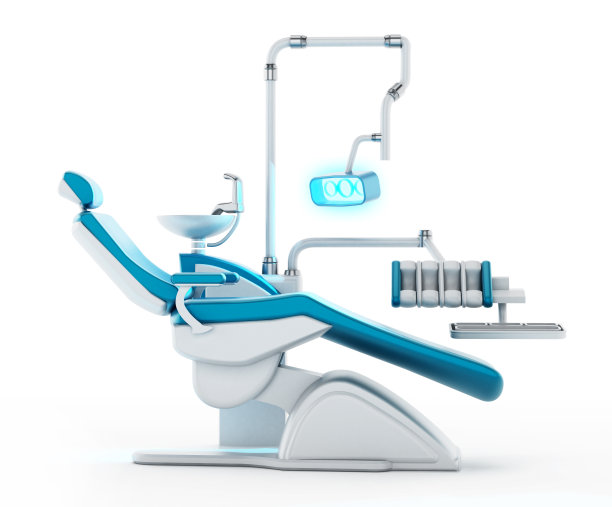Summary: Dental implant surgery has become a popular solution for those seeking to restore their smiles and improve overall dental health. However, it is essential to consider certain guidelines and safety precautions before undergoing the procedure. This article outlines crucial factors, including understanding the procedure, preparing for surgery, post-operative care, and the importance of selecting a qualified professional. By following these essential recommendations, patients can ensure a successful dental implant experience and minimize risks associated with the surgery.
1. Understanding the Dental Implant Procedure

Before committing to dental implant surgery, it is crucial to have a comprehensive understanding of the procedure itself. Dental implants are artificial tooth roots that are placed into the jawbone to support replacement teeth. In most cases, the surgery involves multiple stages, which typically includes initial consultation, implant placement, and follow-up visits for crowns or dentures. Knowing these details can help patients mentally prepare for the entire process.
Moreover, its important to recognize that dental implants require sufficient bone density for proper placement. This means that patients may need preliminary treatments, such as bone grafting, if their jawbone is inadequate. Therefore, candidates should undergo detailed imaging and assessments to determine their eligibility for implants.
A thorough discussion with a dental professional about the potential risks and benefits associated with dental implants should also take place. Patients must feel informed and confident about their decision before proceeding with the surgery.
2. Preparing for Dental Implant Surgery
Preparation for dental implant surgery is a vital step that can significantly impact the outcome. First, patients should consult with their dentist or oral surgeon to discuss their medical history and any medications they may be taking. This dialogue helps identify any underlying health issues that could complicate the surgery or the healing process afterward.
Additionally, before the surgery, patients may be advised to refrain from eating or drinking anything for a few hours, particularly if sedation or anesthesia will be used during the procedure. Adhering to these guidelines helps ensure a smoother experience on the day of the surgery.
Lastly, arranging for transport and post-operative care is crucial. Since patients might be under sedation, having someone available to drive them home will ensure safety and comfort after the procedure. Proper planning can alleviate anxiety and set the stage for a successful outcome.
3. Post-operative Care and Recovery Tips
Post-operative care is an essential aspect of the dental implant journey. Following surgery, patients may experience some discomfort, swelling, or bleeding. Its important to follow the dentists aftercare instructions meticulously. This might include taking prescribed medications, applying ice packs, and maintaining a soft food diet in the initial days.
Keeping the surgical area clean is also paramount. Patients should brush their teeth gently, avoiding the immediate implant area, to prevent infection. Moreover, regular follow-up appointments will be recommended to monitor the healing progress and ensure the implant is integrating into the jawbone correctly.
Addressing any unusual symptoms, such as prolonged swelling or severe pain, should also be a priority. Timely communication with a healthcare professional can help address complications before they exacerbate, leading to a smoother recovery process.
4. Choosing the Right Dental Professional
Choosing a qualified and experienced dental professional to perform the implant surgery is fundamental. Patients should research their options, looking for credentials, specializations, and patient reviews. Meeting with a few candidates for consultations can also provide insight into the professionals approach and demeanor.
Moreover, the dental clinics environment and the technology they use can also impact the overall experience. A well-equipped clinic that demonstrates adherence to hygiene standards and modern techniques is indicative of a commitment to patient care. Clinicians that specialize in implantology can offer specific insights and expertise that may be beneficial.
Lastly, discussing the costs involved and any financing options available should not be overlooked. Understanding the full scope of financial commitments can help patients plan better and avoid unexpected expenses during their treatment journey.
Summary:
In conclusion, undergoing dental implant surgery is a process that requires comprehensive understanding and preparation. By educating themselves about the procedure, preparing adequately, prioritizing post-operative care, and selecting the right professional, patients can enhance their chances of success and mitigate potential issues. Taking these essential precautions helps pave the way for a smile transformation that can last a lifetime.
This article is compiled by Vickong Dental and the content is for reference only.
Vickong Dental
Vickong Dental is a large medical group established in Hong Kong in 2008 by professors from well-known medical universities in Guangdong and Hong Kong, as well as medical doctors from key national '985' universities (including Master's supervisors and senior professors). The chain of branches brings together expert dentists with PhDs and Master's degrees from Hong Kong and Mainland China, committed to providing high-quality dental treatment.
"Vickong Dental Practices the University Motto of 'Healing and Serving Society,' with a Stable Operation for Sixteen Years. It Has Been honored with Hong Kong Enterprise Leaders's Choice,' and is a Global Trusted Implant Center for the Nobel Implant System. Recommended by Hong Kong Metro Broadcast and Guangdong Television, it Serves Customers from Over Thirty Countries and Regions, Gaining the Trust and Favor of Citizens from the Guangdong-Hong Kong-Macau Greater Bay Area and Surrounding Cities.

Thousands of customers' unanimous praise
The most recognized and highly recommended dental service by customers in the Guangdong-Hong Kong-Macau Greater Bay Area
We Ensure You Receive Detailed Care and Attention Here
Hong Kong standards, Shenzhen prices, Your Trusted English-speaking dentists

Vickong Dental Medical-Grade Instrument Disinfection Process
Vickong Dental Medical-Grade Instrument Disinfection Process

Vickong Dental Chain: A Warm and Comfortable Environment for Treatment






Appointment Hours

Q&A
Why choose Vickong Dental?
Vickong Dental practices the university motto 「Medicine to Benefit Society」, with each branch bringing together highly qualified dentists with doctoral and master’s degrees from Hong Kong and the Mainland, and has maintained seventeen years of steady operation。Recipient of 「2024 Hong Kong Enterprise Leaders Brand」, 「2025 Hong Kong Enterprise Leaders Brand」, a Nobel Biocare Global Trusted Implant Center, and a brand recommended by Metro Radio Hong Kong and Guangdong TV。
To date, we have served customers from more than thirty countries and regions,earning exceptionally high word-of-mouth recognition and trusted recommendations from residents across the Guangdong-Hong Kong-Macao Greater Bay Area and surrounding cities
We have eight major branches in Zhuhai、Shenzhen,and a consultation and service assurance center in Hong Kong,so you can book a free consultation at any time for any questions,which is very reassuring.
If I do not accept the quotation after the CT scan, will I be charged??
No! As long as the actual treatment has not started, you will not be charged any fees.
Will there be any additional charges during the treatment process?
No, there won’t be any additional charges. Before treatment begins, we will clearly explain the treatment plan and its corresponding fees. Only after the patient agrees and signs the consent form will we proceed with the dental service.
Can I pay in Hong Kong dollars?
Yes. Vickong Dental accepts payment in Hong Kong dollars. The amount will be converted based on the exchange rate of the day, and the applicable rate will be clearly communicated to you in advance.
Can I reschedule my appointment at any time?
Yes. Please contact us via **WeChat** or **WhatsApp** as early as possible, providing your original appointment time and details, along with your preferred new date and time slot for rescheduling.













